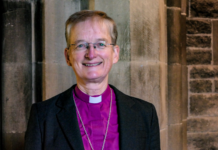Amid a further deterioration of the COVID-19 pandemic situation, the churches affiliated with the National Christian Council of Sri Lanka (NCCSL) wish to alert the nation and its political leadership to the burning needs of particularly severely affected social groups as well as certain national challenges that need urgent addressing.
After more than one and a half years of this pandemic, the failure to adequately manage this public health disaster has reduced some already disadvantaged social groups of our nation to conditions of bare physical survival. Meanwhile, whole younger generations continue to suffer from extended interruptions of their life nurturing growth due to a continuing lack of alternate educational facilities. In previous news media briefings, the Heads of Churches of the NCCSL have already commented on the main aspects of the current national situation.
Special attention of the Government and the whole nation must be drawn to the predicament of the hill country estate community, isolated as they are, in the plantations. Despite being one of the greatest ever contributors of export income to the nation, the estate community has remained the most disadvantaged social group of our nation. It is, therefore, most vulnerable to the multiple shocks of the current pandemic crisis.
The nation though overall having moved into the ‘middle-income’ bracket in the world community, the estate community still lacks even the minimum access that all other communities enjoy not only to public health facilities but also to most other infrastructure, be it education, social services, utilities and communications. Thus, discriminated against, marginalised in the economy and lacking educational qualifications, many of the estate community’s younger generations migrate to low-grade livelihoods in urban areas far from their homes and with none of the protections of formal employment.
Unused to multi-cultural and urban environments, they continue to suffer a similar disadvantage even in these new livelihood sectors. The cruellest predicament has been the channelling of under-age children into domestic work in urban middle-class homes of all communities throughout the country. This uncivilised exploitation of child labour has often also seen violence against and abuse of these children.
We call on the Government, the business community and civil society to respond to the urgent need for special attention to ensuring the estate community’s access, on an equal level with other communities, to easing economic pressures and severe educational hardships intensified by the pandemic.
Greater protections are also urgently needed for internally migrant labour and monitoring of child labour for future eradication. The inequities in access to pandemic mitigation also must be redressed without delay. Special action programs are imperative to halt more victimisation of the estate community as the pandemic spreads. We are confident that the UN and the international community will respond to such national initiatives.
We are disappointed that in the present crisis of education, the Government is focussing on a controversial single venture that undermines the University Act; a national consensus on principles of higher education and continues the disturbing trend of militarisation. The proposed Kotelawala Defence University Bill raises many matters of concern that at the very least should be discussed further with all relevant stakeholders. We request the Government to do so.
In the context of the country’s prolonged public health crisis, what is needed is that the national education sector includes a full sectoral mobilising and concentration of all relevant resources, institutional facilities, telecommunication infrastructure, equipping of teacher and administrative personnel and medical protection for the student population among other related aspects. All policy and actions must be done in adequate consultation with health and educational professionals. This coordinated effort must include both the State as well as private sector education systems.
Once again, we urge the Government and all leadership sections of our island society to ensure that the COVID-19 vaccination program is done in the most coordinated and equitable manner possible. We reiterate that full transparency is needed to reassure the nation that vaccine procurements and calibrated distribution are done according to expert advice being tapped nationally and assisted by The World Health Organization.
We pray that our nation overcomes this calamity with the least possible suffering.
Signed:
Rev. Ebenezer Joseph, Chairperson, National Christian Council of Sri Lanka and President, Methodist Church of Sri Lanka
Rt. Rev. Dushantha Rodrigo, Bishop of Colombo, Church of Ceylon
Rt. Rev. Keerthisiri Fernando, Bishop of Kurunegala, Church of Ceylon
Rt. Rev. Dr. Daniel Thiagarajah, Bishop of Jaffna, Church of South India
Rev. Heshan De Silva, President, Sri Lanka Baptist Sangamaya
Rev. Saman Perera, Moderator, Presbytery of Lanka
Rev. Shirley Faber, President, Christian Reformed Church
Colonel Nihal Hettiarachchi, Territorial Commander, Salvation Army of Sri Lanka
Rev. Dr. Chrisso Handy, General Superintendent/Chairperson, Assemblies of God
Rev. George Niranjan, Acting President, Foursquare Gospel Church
Rev. Maxwell Doss, General Secretary, National Christian Council of Sri Lanka



